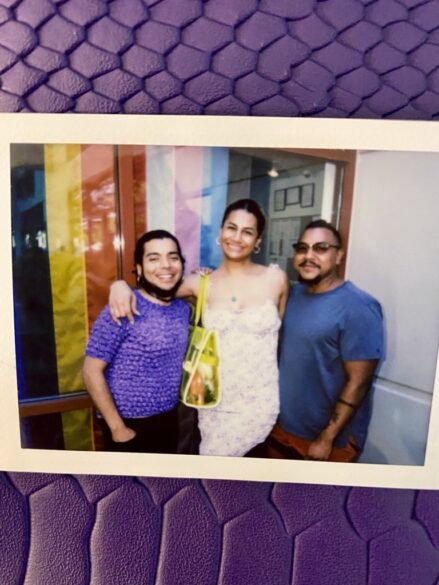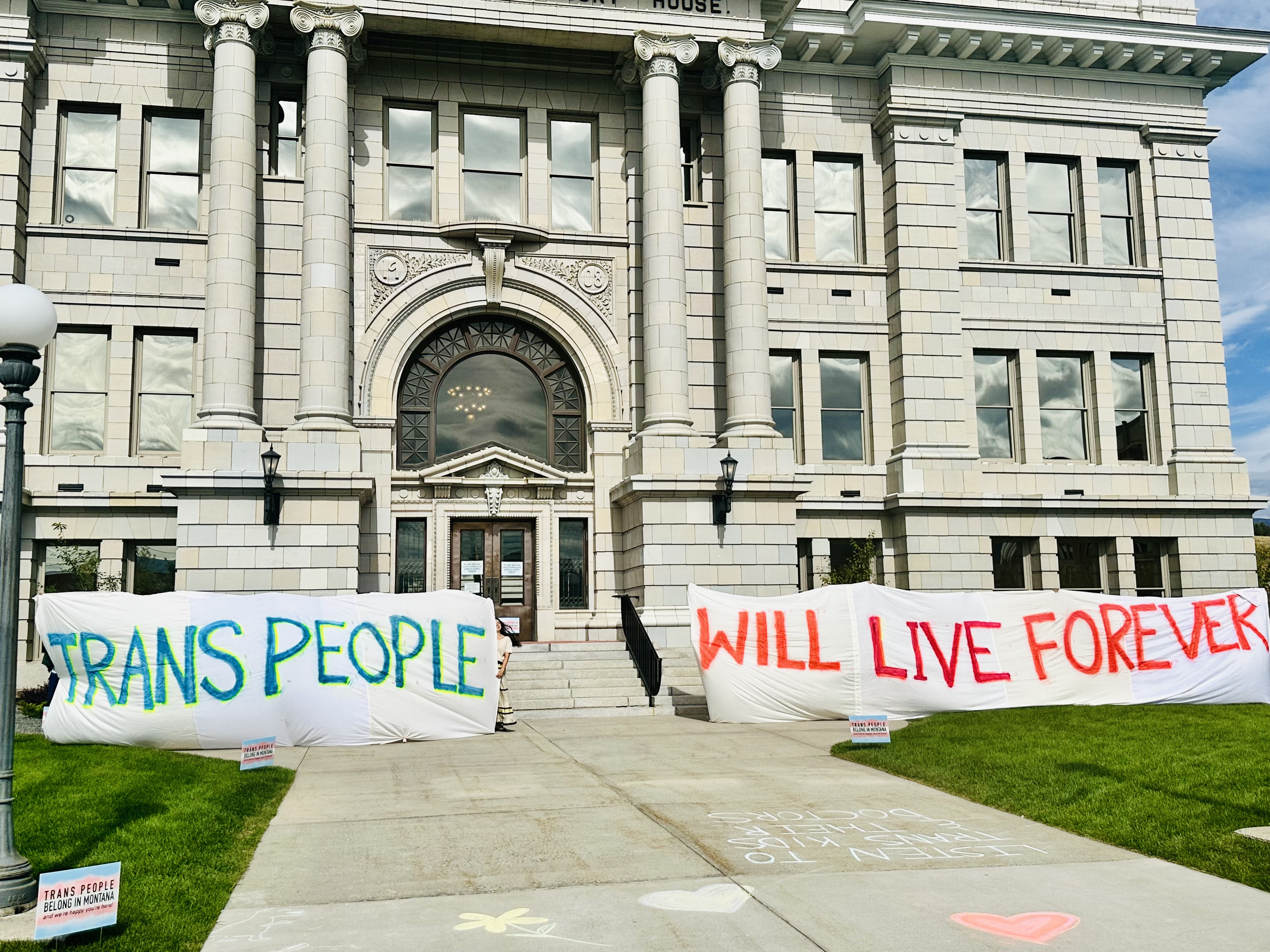All LGBTQ+ people should be able to live openly as our whole selves, and to live free and well beyond discrimination and violence. We know that to achieve this reality, it will take multiple strategies and efforts to get there.
We established the Department of Community Advocacy, Research and Education, CARE for short, in 2022 to meet the evolving needs of the Northwest while deploying philanthropic tools for social transformation. While Pride Foundation’s grants and scholarships support the brilliant and dedicated organizations and leaders working to meet the needs of our communities, our CARE work takes a broader focus to shift the culture in communities across the Northwest to make this vision a reality.
Since 2016, the work that has evolved to become the Department of CARE has unapologetically centered BIPOC Trans, Nonbinary, Intersex, and Two-Spirit ancestral knowledge and lives. Our ultimate goal through CARE is to fuel a Northwest region that is inhospitable to homophobia, transphobia, racism, misogyny and all other forms of harm directed at LGBTQ+ communities.
Together, we can transform our culture so that we can all find safety and belonging in our home communities, especially those most often systematically pushed to the margins or at risk of discrimination and harm like Black and Indigenous trans femmes.
What is CARE?
As a Department, CARE has developed initiatives, programs, and projects. Our primary focus currently is the TRANSform Culture Program, with emergent programs around safety/wellness and trans-regional coalition-building in development. CARE has three key goals:
- Engaging in everyday community advocacy beyond traditional philanthropy.
- Increasing capacity for critical community research by and for all LGBTQ+, especially BIPOC Trans+, individuals and organizations in the Northwest.
- Nourishing regional community education that honors and sustains the historical and future sexual and gender diversity of the Northwest and beyond.
Community Advocacy:
We drive change in our region by fueling community power for the breadth and depth of LGBTQ+ community needs — from courtrooms to board rooms to living rooms. These community advocacy efforts range widely—from local, state-based coalition work against anti-LGBTQ+ legislation, to timely advocacy grants to organizations protecting our communities’ rights on the ground.
What all these efforts have in common is Pride Foundation’s commitment to finding new ways to provide support in addition to grantmaking, from submitting testimony and sponsoring meals and transportation, to chanting in the streets with our community.
Community Research:
Critical community-based participatory research is the birthplace for this department and a central activity of the department now and into the future. We conduct research to develop messaging that is focused on building narratives that transform culture to be more inclusive of the breadth of LGBTQ+ people, specifically focused on BIPOC Transgender, Two-Spirit, Nonbinary, and Intersex people in communities.
What began as messaging research to defeat anti-Trans bathroom bills in Washington state has evolved into the TRANSform Culture Fellowship, TRANSform Culture Village Council, and ongoing regional narrative work in the service of gender and racial justice.
Community Education:
Decades of movement work has taught us that sharing our stories is one of the most powerful ways to shift culture. We nourish Community Education by promoting narratives of LGBTQ+ people and communities in the Northwest, especially those that are BIPOC and Trans+, which highlight the gender-diversity of the region and sustain or enhance the life of LGBTQ+ Northwesterners. We conceptualize education broadly as both a means and an end, and our efforts have included things like hosting collaging sessions that help us visually represent our stories, hosting direct action for Trans+ folks, creating mission-aligned yard signs, supporting open mics featuring LGBTQ+ people, providing trainings to non-profits and foundations
Together, we’re helping to shift narratives about LGBTQ+ people, so that we are more celebrated, resourced, and can live healthier joyful lives.

